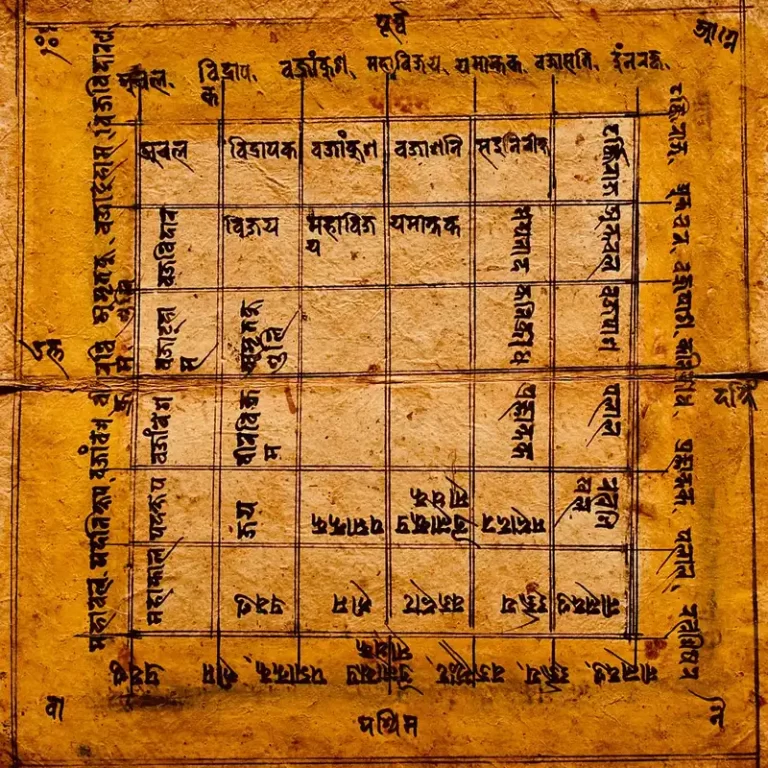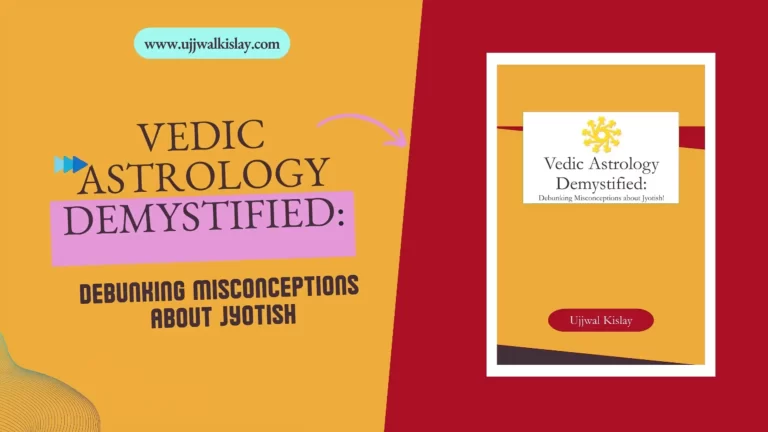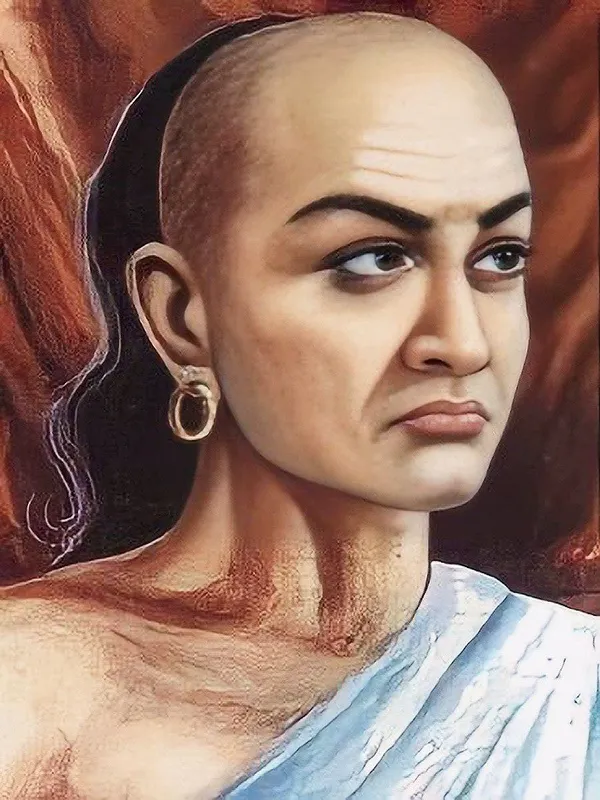How to analyze Progeny in Vedic Astrology?
Introduction:

In the realm of Vedic astrology to analyze Progeny, a thorough scrutiny of an individual’s natal chart is conducted to discern their prospects for parenthood and the attributes of their progeny. Central to this examination is the 5th house, which symbolizes creativity, romance, and offspring. The vigor and state of the 5th house, coupled with the celestial bodies it houses, assume a pivotal role in appraising one’s prospects for childbearing. Jupiter, the inherent indicator of progeny, undergoes meticulous evaluation concerning its placement, celestial interactions, and strength, thereby providing insights into the blessings and felicity associated with descendants.
Furthermore, the 9th house (5th house from the 5th house), denoting fortune and auspiciousness, is factored into the assessment to analyze Progeny, especially in conjunction with favorable alignments or associations with benevolent planets like Jupiter or Venus. The timing of childbirth is frequently forecasted through planetary Dashas and transits, with particular emphasis on the transits of Jupiter and Saturn across the 5th house. In cases where afflictions or malefic influences are detected, remedial actions, such as prayers or rituals, might be advised to mitigate challenges in conceiving.
Vedic View on Progeny:
In Vedic culture, the institution of marriage, known as Vivaah, is deeply intertwined with the concept of Santana, signifying progeny or offspring. Marriage is revered as a sacred union that not only unites two individuals but also serves as a conduit for perpetuating the family lineage and fulfilling the duty of procreation. The primary objective of Vivaah, as viewed through the lens of Santana, is to establish a stable and harmonious family life, creating an environment conducive to the birth and nurturing of children.
Santana is regarded as the wellspring of family continuity and expansion, with children being seen as the embodiment of the love and unity between a couple, destined to become the future custodians and custodians of family traditions.
On a personal level, parenthood brings forth feelings of joy, fulfillment, and a sense of purpose for parents. Children offer emotional support, care, and companionship in later stages of life. Moreover, the experience of raising children fosters personal growth, responsibility, and a spirit of altruism.
Factors to Analyze Progeny:
When reading a horoscope to analyze Progeny, the primary focus centers on key astrological elements, including the 5th House, the Lord of the 5th House, Jupiter, the D7 chart (Saptamsha), and the current planetary Dasha and Gochar (transits).
Role of the Fifth House: The fifth house, known as the Putra Bhava, holds paramount importance in the birth chart to analyze Progeny. Astrologers scrutinize the strength and placement of planets within this house, along with any relevant aspects and combinations, to gauge the potential for childbirth and the nature of offspring.
Role of Jupiter: Jupiter assumes the role of a significator (karak) to analyze Progeny or children in Vedic astrology. It is closely associated with attributes like wisdom, expansion, and benevolence. The influence of Jupiter is believed to bestow blessings and abundance in various facets of life, including the realm of progeny. Jupiter is further linked with fertility and the ability to conceive children. A well-positioned and potent Jupiter in the birth chart is deemed favorable for progeny, signifying blessings and growth in this aspect of life.
Planetary Influences: The specific positions and influences of celestial bodies in the birth chart offer valuable insights into one’s capacity to conceive and bear children. For instance, Jupiter frequently serves as a key indicator for offspring. Conversely, malefic influences on the fifth house or its ruling planet can suggest potential challenges or delays in the process of conception. These planetary dynamics are carefully considered in the analysis to provide a comprehensive understanding of an individual’s prospects for progeny.
Supporting Yogas to analyze Progeny:

In Vedic astrology, various yogas, or combinations, are regarded as indicators of an individual’s potential to analyze Progeny or have children based on their birth chart. These yogas manifest through specific planetary positions, aspects, and combinations. Here are some common yogas associated with progeny:
1. Putra Karka Yoga: This yoga materializes when the planet Jupiter is situated in the fifth house of the natal chart. Jupiter, as the significator of children, being placed in the fifth house signifies the potential for childbirth.
2. Santana Yoga: Santana Yoga forms when the ruler of the fifth house occupies a favorable position and is well-aspected. This yoga signifies blessings and the likelihood of progeny.
3. Putra Bhagyadhipa Yoga: This yoga takes shape when the rulers of the fifth and ninth houses are in mutual exchange or aspect each other. It is considered a potent yoga for children, symbolizing fortune and blessings in matters of progeny.
4. Chara Putra Yoga: Chara Putra Yoga emerges when a movable zodiac sign (Aries, Cancer, Libra, or Capricorn) is rising in the first house (Ascendant), and the fifth house is either occupied or influenced by a benefic planet. This yoga points to the potential for having children.
5. Santana Gopala Yoga: Santana Gopala Yoga is established when the fifth house is occupied by the Moon, and Jupiter is robust and well-placed in the birth chart. It is deemed a favorable yoga for progeny and is associated with the blessings of Lord Krishna.
These yogas serve as key astrological indicators to analyze Progeny, offering insights into an individual’s potential for parenthood and the blessings associated with it.
Obstructing Yogas to analyze Progeny:
In Vedic astrology to analyze Progeny, specific combinations or yogas are believed to signal challenges or potential denial of progeny in an individual’s birth chart. These yogas emerge through distinct planetary arrangements, aspects, and combinations. Progeny consultation meticulously examines the entire horoscope, taking into account these yogas among other factors. Here are some common yogas associated with difficulties or potential denial of progeny:
1. Nisantaana Yoga: Nisantaana Yoga manifests when the fifth house remains unoccupied or devoid of planetary aspects. This yoga suggests obstacles or delays in the journey toward parenthood.
2. Paap Kartari Yoga: Paap Kartari Yoga takes shape when malefic planets encircle or cast their aspects upon the fifth house, while benefic planets are weak or unable to exert their positive influence. This yoga points to hindrances or delays in conceiving or having children.
3. Bhruna Hatya Yoga: Bhruna Hatya Yoga arises when malefic planets, particularly Mars and Saturn, are positioned in the fifth house. This yoga is linked with challenges and difficulties in either conceiving or maintaining a pregnancy.
4. Grahaana Yoga: Grahaana Yoga occurs when the Sun and Moon are in conjunction or share the same sign or house. This yoga implies complications or difficulties in the process of conception or childbirth.
5. Baanjh Yoga: Baanjh Yoga takes form when the lord of the Ascendant and the lord of the fifth house are feeble or in conjunction with malefic planets. This yoga is associated with the denial or postponement of progeny.
These yogas serve as significant astrological indicators to analyze Progeny, shedding light on potential challenges or hurdles in the path to parenthood. They are carefully analyzed alongside other aspects of the birth chart during Progeny Consultation.
Role of Pitra Dosha to analyze Progeny:
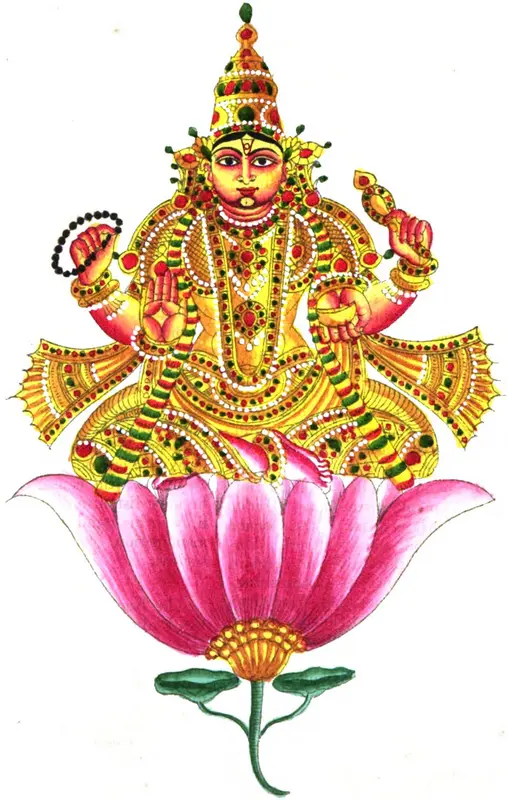
In Vedic astrology, it is believed that certain curses or afflictions stemming from past lives or ancestral influences can manifest as challenges or denial of progeny in an individual’s birth chart. These curses are thought to be the result of negative karmic imprints and can impact various aspects of life, including the capacity to conceive and have children.
Among these afflictions, Pitra Dosha is one of the most common causes of delays or denials in progeny. However, it is observed that remedies and charitable acts suggested in Vedic Astrology Progeny Consultations have assisted many couples in overcoming these challenges and achieving progeny. Here are some common curses or afflictions associated with progeny denial:
1. Pitra Dosha: Pitra Dosha is a curse or affliction that arises from the displeasure of ancestors or unresolved ancestral issues. Several factors contribute to the formation of Pitra Dosha in a person’s birth chart, including neglecting ancestral duties, ancestral injustices, unfulfilled obligations towards parents, sudden or untimely deaths within the family, and the unfulfilled desires of ancestors. Pitra Dosha can affect fertility and progeny. Remedial measures, such as performing Pitru Tarpana (ancestral rituals) and Pitru Puja (worship of ancestors), can help alleviate its effects.
2. Shrapit Yoga: Shrapit Yoga is formed when Saturn and Rahu are in conjunction or mutual aspect in the birth chart. It is believed to be a consequence of past negative karma and can bring challenges or delays in various aspects of life, including progeny. Appropriate remedies, such as mantra recitation, fasting, and acts of charity, can help mitigate the effects of Shrapit Yoga.
3. Curses of Sages or Deities: In some instances, curses from sages, deities, or divine entities are thought to influence one’s ability to have children. These curses may be karmic consequences or divine tests. Seeking guidance from a knowledgeable astrologer or performing specific remedies, prayers, or rituals dedicated to the respective deity or sage can help mitigate the impact of such curses.
These curses and afflictions are believed to have an impact on an individual’s journey toward parenthood and are considered in Vedic astrology to analyze Progeny. The prescribed remedies and actions aim to address the negative influences and facilitate the fulfillment of the individual’s desire for progeny.
Gauging Fertility-Beeja Sphuta and Kshetra Sphuta:
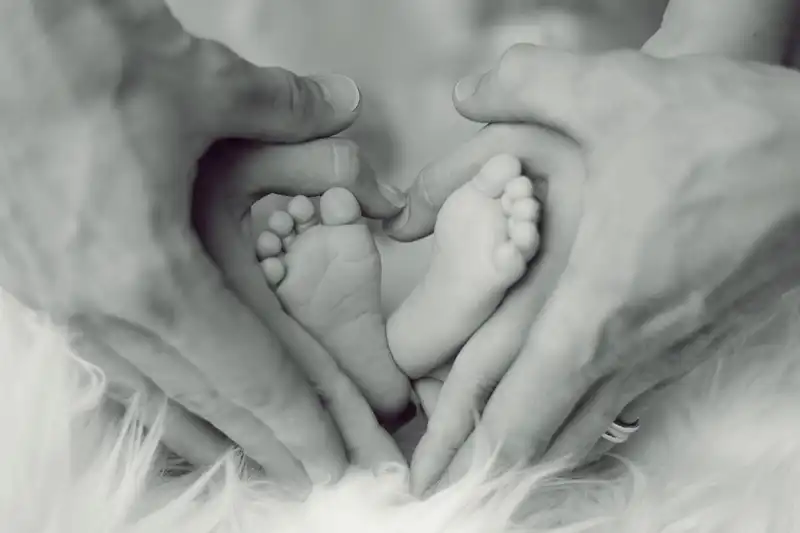
In Vedic Astrology to analyze Progeny, various methods are employed to assess an individual’s fertility. One commonly used and popular method involves the calculation of Beeja Sphuta for male fertility and Kshetra Sphuta for female fertility.
Male Fertility (Beeja Sphuta): Beeja Sphuta is determined by adding the longitudes of the Sun (Su), Venus (Ve), and Jupiter. The outcome of this calculation is then assessed as follows:
- If the Beeja Sphuta falls in an odd sign (Rasi) and Navamsa, it indicates that there are no significant fertility issues.
- If one of them (either Rasi or Navamsa) is even while the other is odd, it suggests a minor fertility issue that may be amenable to remedies.
- However, if both the Rasi and Navamsa are even, it indicates a more serious fertility problem that may necessitate medical intervention.
Female Fertility (Kshetra Sphuta): Kshetra Sphuta is calculated by adding the longitudes of the Moon (Mo), Mars (Ma), and Jupiter. The assessment of female fertility is based on the outcome of this calculation:
- If the Kshetra Sphuta falls in an even sign (Rasi) and Navamsa, it suggests that there are no significant fertility issues for the female.
- If one of them (either Rasi or Navamsa) is odd while the other is even, it indicates a minor fertility issue that may be corrected with appropriate remedies.
- However, if both the Rasi and Navamsa are odd, it indicates a more serious fertility problem for which medical intervention may be required.
It’s important to note that the information provided here offers a general overview of the principles involved in assessing fertility through Beeja Sphuta and Kshetra Sphuta calculations. For personalized and accurate insights, individuals should seek a Progeny Consultation with an experienced Vedic astrologer who can provide a comprehensive analysis of their specific birth chart and circumstances.
Timing Child Birth:

In Vedic astrology to analyze Progeny, the timing of childbirth is a significant aspect that astrologers can assess through various techniques, including predictive astrology and Dasha systems. These methods help identify favorable or auspicious periods for conception and childbirth. Here are some key factors considered in timing childbirth:
1. Mahadasha and Antardasha: The planetary periods, known as Mahadasha and Antardasha, are crucial factors in determining the timing of childbirth. Astrologers analyze these periods to identify when the planetary influences are most supportive of conceiving and carrying a pregnancy. Specific Mahadashas and their corresponding Antardashas are examined for their potential impact on fertility and parenthood.
2. Transits of Jupiter and Venus: Jupiter and Venus are considered benefic planets for childbirth in Vedic astrology. Astrologers closely examine the transits of these planets, looking for positive aspects or conjunctions with relevant houses in the birth chart, particularly the fifth house, which represents children. Favorable transits of Jupiter and Venus can indicate auspicious times for conceiving and giving birth to a child.
3. Fifth House and its Lord: The fifth house plays a central role in matters related to children in Vedic astrology. Astrologers assess the strength, aspects, and influences of the fifth house to gauge its potential for supporting childbirth. Additionally, the position and aspects of the fifth house lord are carefully analyzed to determine when the individual may experience the blessing of parenthood.
By considering these factors and conducting a comprehensive analysis of an individual’s birth chart, Vedic astrologers can offer insights into the timing of childbirth, helping individuals and couples plan for the arrival of their children during more favorable astrological periods.
Vedic Astrology Remedies for Progeny:

In cases where there are difficulties in conceiving or having children, Vedic astrology offers various remedies and rituals to address these challenges. These remedies aim to harness positive energies and seek divine blessings for improved chances of conception and childbirth. Here are some commonly suggested remedies:
1. Performing Santana Gopala Mantra Japa: Chanting the Santana Gopala Mantra, which is “Om Devaki Sudha Govinda Vasudeva Jagatpate, Dehime Tanayam Krishna Tvaamaham Sharanam Gatah,” with devotion and faith is believed to invoke the blessings of Lord Krishna for the birth of a child.
2. Observing Vrat (Fast) and Pujas: Observing fasts on auspicious days associated with fertility and offering prayers and pujas dedicated to deities linked with progeny, such as Lord Krishna, Lord Shiva, or Goddess Santoshi Mata, can be beneficial.
3. Wearing Gemstones: Wearing gemstones associated with fertility, such as yellow sapphire (Pukhraj) or coral (Moonga), can be recommended based on individual astrological charts. Consulting an experienced astrologer for personalized gemstone recommendations is essential.
4. Seeking Blessings from Elders and Saints: Seeking blessings from elderly family members, saints, or spiritual guides known for their benevolent energy and wisdom can help overcome obstacles and bring positive energy to the desire for progeny.
5. Vastu Considerations: Implementing Vastu Shastra principles to create a harmonious and clutter-free environment, especially in the bedroom, can promote positive energies and fertility. Consulting a Vastu expert for personalized guidance is advisable.
6. Medical Consultation: In addition to astrological remedies, seeking medical advice from qualified healthcare professionals is crucial. Medical examinations and treatments should be pursued to address any underlying health issues or fertility challenges that may be contributing to delays in conception.
It’s important to remember that these remedies are intended to provide spiritual support and create a positive environment. They are not guaranteed solutions but are complementary to medical interventions when necessary. Consulting a knowledgeable astrologer who can assess individual birth charts and offer personalized guidance is recommended for a comprehensive approach to addressing fertility concerns.
Conclusion:
In Vedic astrology to analyze Progeny, the potential for having children, is a vital aspect of a person’s birth chart. This analysis primarily hinges on the examination of the 5th house and its ruling planet, in conjunction with Jupiter, the natural significator of children. Here is a concise overview:
To analyze Progeny in Vedic astrology, begin by scrutinizing the 5th house in the birth chart, which symbolizes creativity, romance, and offspring. Evaluate its strength, aspects, and the presence of planets within it. A robust 5th house with positive influences suggests fertility and the likelihood of children.
Subsequently, consider the placement of Jupiter in the birth chart, as it signifies the happiness and blessings associated with children. A well-placed and unafflicted Jupiter enhances the prospects of having offspring.
Furthermore, examine the 9th house, which pertains to fortune and luck related to progeny. Favorable aspects or conjunctions with planets like Jupiter, Venus, or the Moon can indicate positive influences on the potential for children.
Additionally, the timing of events related to children can be gauged by monitoring the transits of Jupiter and Saturn over the 5th house.
A meticulous analysis of the 5th house, its ruling planet, Jupiter, and related celestial influences is pivotal in ascertaining one’s prospects for progeny in the realm of Vedic astrology.
I aspire for this article to provide you with assistance. Should you discover value within these words, kindly contemplate sharing them with your loved ones. I invite you to spare a moment to offer your thoughts and appraisals below. For further remarkable content akin to this, I encourage you to delve into our website. Additionally, I extend an invitation to subscribe to my YouTube channel for forthcoming materials of similar nature. Lastly, feel unrestrained to establish a connection with me through social media. Wishing you a splendid day ahead!
हरि ॐ तत्सत्
FAQs:
Here are a few frequently asked questions (FAQs) regarding how to analyze Progeny using Vedic Astrology:



